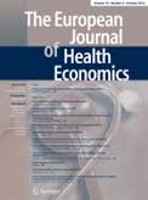Posted by Michael Wonder on 13 Aug 2020
Once we have it, will we use it? A European survey on willingness to be vaccinated against COVID-19

13 August 2020 - While the focus of attention currently is on developing a vaccine against the Coronavirus SARS-CoV-2 to protect against the disease COVID-19, policy makers should prepare for the next challenge: uptake of the vaccine among the public. Having a vaccine does not automatically imply it will be used.
Compliance with the anti-H1N1 vaccine during the 2009 influenza pandemic, for instance, was low, and in the decade since, vaccination rates have remained an issue of concern while vaccination hesitancy has become more prevalent, leading to increases in disease outbreaks in multiple countries.
It is, therefore, important to understand whether or not people are willing to be vaccinated against COVID-19, as this can have large consequences for the success a vaccination programme—with potentially large health and economic consequences.

